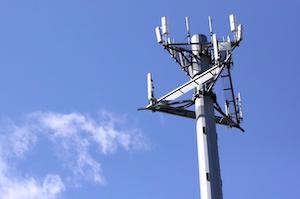$11M invested in broadband infrastructure
The provincial government has announced nearly $11 million in funding for projects to enhance broadband infrastructure in First Nations communities across Northern Ontario.
 "Now more than ever, residents in Northern Ontario and across the province need access to faster, more reliable broadband service," said Infrastructure Minister Laurie Scott. "Our investments will make it easier for people to work and learn from home, run their businesses, access vital services and connect with others."
"Now more than ever, residents in Northern Ontario and across the province need access to faster, more reliable broadband service," said Infrastructure Minister Laurie Scott. "Our investments will make it easier for people to work and learn from home, run their businesses, access vital services and connect with others."
Specifically, the funding will be used to support three projects. The first will build infrastructure that brings high-speed broadband to more areas in Chisholm, Marathon, Terrace Bay, rural Thunder Bay and Oliver Paipoonge.
The second will see construction of a 22-kilometre fibre backbone network that brings high-speed broadband to Seine River First Nation, Couchiching First Nation, Rainy River First Nations, Ojibways of Onigaming First Nation, Animakee Wa Zhing #37 First Nation and Big Grassy First Nation.
The third will upgrade the speed and capacity of the K-Net network, owned by Keewaytinook Okimakanak and which serves more than 80 First Nation communities, while supporting future upgrades.
The investment is part of the province’s broadband and cellular action plan which aims to bring faster internet to more than 7,000 households and businesses across the North.
Last July, the province launched the Improving Connectivity for Ontario program, a multi-year program that aims to support approved broadband and cellular projects. In November, it announced it would double the program funding. The province has now committed to spending nearly $1 billion in infrastructure upgrades over the next six years.
"COVID-19 has put a spotlight on the challenges facing our northern and remote communities, including access to reliable, high-speed internet," said Greg Rickford, Minister of Energy, Northern Development and Mines and Minister of Indigenous Affairs. "Efficient and modern broadband infrastructure is critical to advancing economic recovery and development in Northern Ontario. Our government's investment is an important step forward to ensure communities across the North have access to remote education, skills training, and business opportunities."
As many as 12 percent of households in Ontario—or about 1.4 million people—lack access to internet services that meet the minimum speed standards mandated by the Canadian Radio-television and Telecommunications Commission.








